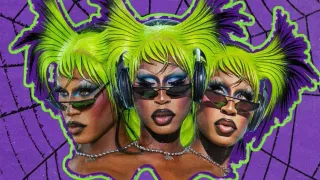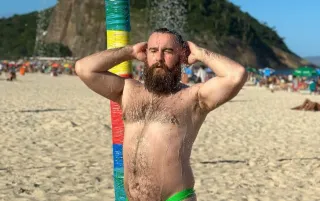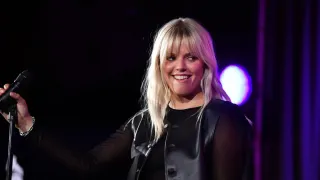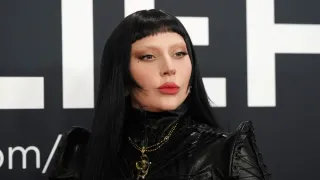
Aug 5
Kavana Reveals Struggles of Being Closeted in the ’90s: “I Was Actually a Virgin Until I Was Almost 20”
READ TIME: 3 MIN.
British pop artist Kavana, born Anthony Kavanagh, has spoken candidly about his experiences as a closeted gay man at the height of his career in the 1990s, shedding light on the challenges LGBTQ+ performers faced in an era that was far less accepting than today. In an exclusive interview with Attitude magazine, Kavana described the deep sense of fear and isolation that accompanied his rise to fame, addressing for the first time how remaining in the closet shaped his youth and career trajectory .
During the 1990s, the British pop scene was a landscape dominated by image, tabloid speculation, and relentless public scrutiny. Kavana, who earned chart success as a teenager with hits like “I Can Make You Feel Good,” revealed the constant anxiety of being discovered as gay. “I was terrified of having a one-night stand,” he told Attitude, expressing that the fear of being outed by the press or the music industry was ever-present and paralyzing . He added, “You’d have a little feeling but I dared not say anything, in case told somebody else,” underscoring the secrecy that enveloped his private life .
Kavana’s struggle was not just with public perception but also internalized shame. The pressure to conform led him to avoid intimacy, and he shared that he was still a virgin as his career was taking off: “I was actually a virgin until I was almost 20,” he admitted, explaining that fear and secrecy played a major role in delaying his sexual experiences .
Kavana highlighted the emotional exhaustion of keeping his sexuality hidden. “It was a constant act and it was exhausting. But you just got on with it. I was so lucky for this to happen to me, and I must be grateful,” he reflected in a separate interview, acknowledging the gratitude for his career but not minimizing the toll of living a double life . He pointed to the lack of support structures for young LGBTQ+ celebrities, both then and now, remarking that the entertainment industry has been slow to address the mental health needs of its LGBTQ+ talent .
Kavana’s story is not unique among LGBTQ+ artists of his generation. He recounted moments of connection with other closeted stars, including a night spent with the late Boyzone singer Stephen Gately, who himself did not come out publicly until 1999 . These fleeting connections served as rare moments of authenticity in an otherwise isolating environment.
Kavana’s memoir, Pop Scars, offers further insight into the darker aspects of fame, including struggles with addiction and the search for identity . He has spoken openly about using alcohol and drugs as coping mechanisms during his years in the closet, stating that substances became a comfort in the absence of acceptance . Now several years sober, Kavana looks back at his journey with a sense of resilience and a commitment to sharing his experiences with others facing similar challenges .
Through his interviews and writing, Kavana joins a growing number of LGBTQ+ artists who are reclaiming their narratives and advocating for better support within the music industry. He continues to emphasize the importance of visibility, authenticity, and mental health support for young LGBTQ+ people, especially those in the spotlight.
While the entertainment industry has made strides in LGBTQ+ visibility since the ’90s, Kavana’s story is a reminder of the progress still to be made. He notes that coming out is still a profoundly personal and sometimes difficult process, with each generation facing its own unique challenges . By sharing his truth, Kavana hopes to encourage other LGBTQ+ individuals to embrace their identities and seek the support they deserve.
Pop Scars, Kavana’s memoir, is now available and offers a deeper exploration into his life, both as an artist and as a member of the LGBTQ+ community navigating fame and authenticity in a changing world .






